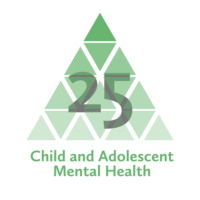Social cognition
-

Are restricted and repetitive behaviours in two- and six-year-olds associated with emotional and behavioural difficulties?
Open Access paper from JCPP Advances – ‘This study aimed to characterize the association of distinct RRB subtypes at two and six years of age, with internalising and externalising difficulties in a community sample of children.’ Sarah J. Carrington (pic) et al.
Read more -

The relationship between cognitive and affective control and adolescent mental health
Open Access paper from JCPP Advances – ‘This study examines whether adolescent mental health is associated with affective control, the application of cognitive control in affective contexts, which shows more protracted development than cognitive control.’ Savannah Minihan et al.
Read more -

Research Review: Child emotion regulation mediates the association between family factors and internalizing symptoms in children and adolescents – a meta-analysis
Open Access JCPP paper – ‘Various family factors impact children’s emotion regulation development, and in turn, contribute to the risk of internalizing symptoms in young people.’ Sylvia Chu Lin (pic) et al.
Read more -

The social domains organization of mentalizing processes in adolescents: a contribution to the conceptualization of personality function and dysfunction in young people
Open Access paper from the JCPP – ‘Drawing on evidence that social domain organization is impaired in borderline personality disorder (BPD) and that hypermentalizing, a heightened interpretation of others’ motives, thoughts or emotions, is elevated in adolescent BPD, we hypothesized that hypermentalizing levels in adolescents will vary by social domain and that elevated BPD features will be associated with impairment of this domain organization of hypermentalizing.’ Jonathan Hill et al.
Read more -

Preterm infants have social cognition deficits which improve in childhood
Researchers at the University of Edinburgh have investigated social attentional preference and its relationship with neurodevelopment in preterm infants.
Read more -

Do children with social anxiety disorder benefit from social skills training?
Social anxiety disorder (SAD) in children can be difficult to treat, as evidenced by the varied outcomes reported post-treatment.1,2 Although childhood treatments for SAD commonly involve at least some social skills training,3 it isn’t clear whether children with SAD have particular difficulties with social skills. There is therefore a need to better establish whether social skills are an effective target for treating SAD.
Read more -

Eye‐tracking for longitudinal assessment of social cognition in children born preterm – video abstract
Video abstract from Bethan Dean on the paper ‘Eye‐tracking for longitudinal assessment of social cognition in children born preterm’, in The Journal of Child Psychology and Psychiatry.
Read more -

Most cited CAMH paper #25 of 25: Review: The impact of motor development on typical and atypical social cognition and language: a systematic review
Hayley C. Leonard, Elisabeth L. Hill.
Read more
Key Practitioner Message includes: Significant relationships exist between the development of motor skills, social cognition, language and social interactions in typical and atypical development -

Most Cited JCPP Articles #7 of 60
Most cited JCPP papers #7 of 60: Development of the adolescent brain: implications for executive function and social cognition
Read more -

Most Cited JCPP Articles #21 of 60
Most cited JCPP papers #21 of 60: PATHWAYS FROM CHILDHOOD TO ADULT LIFE
Read more